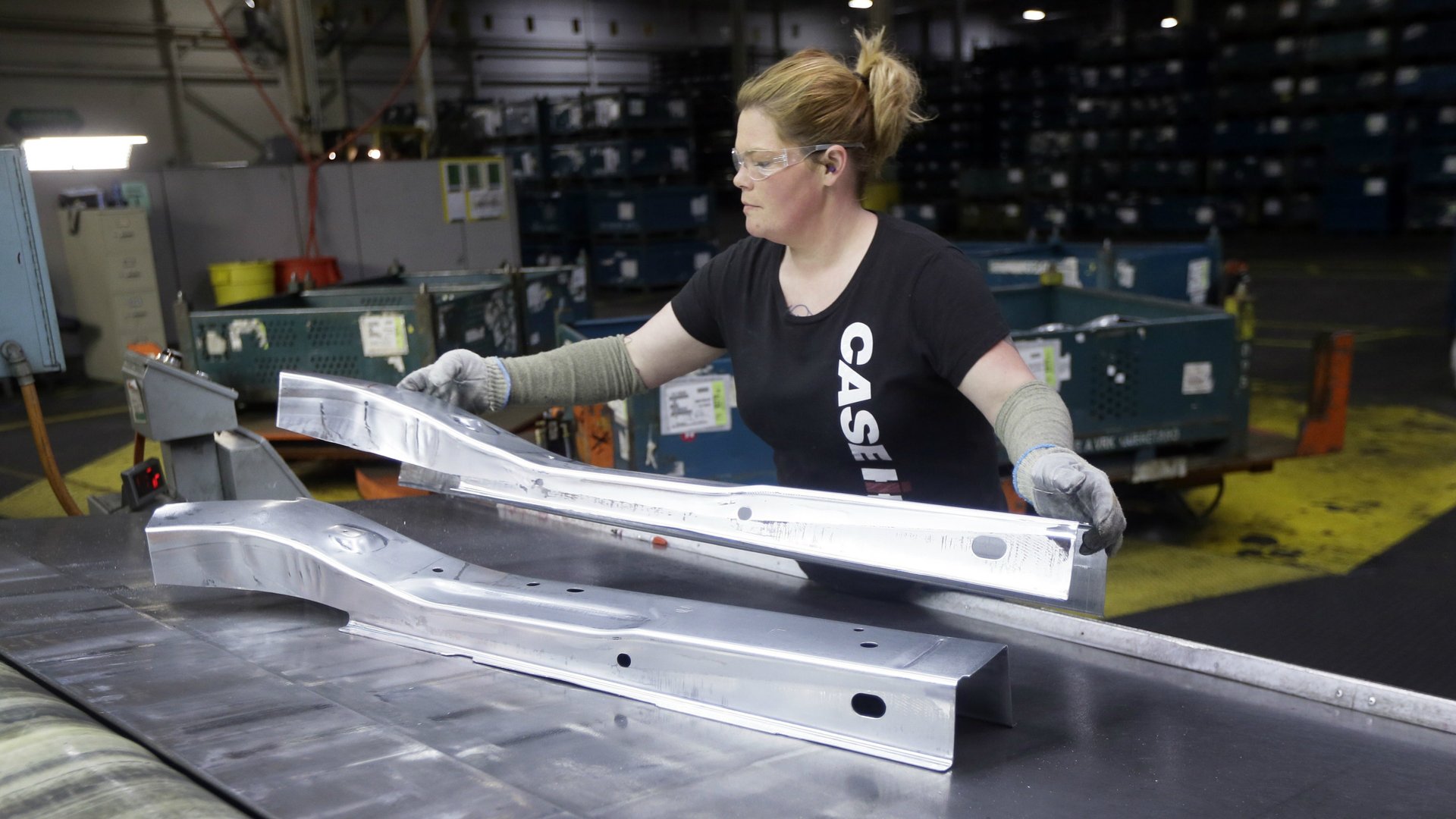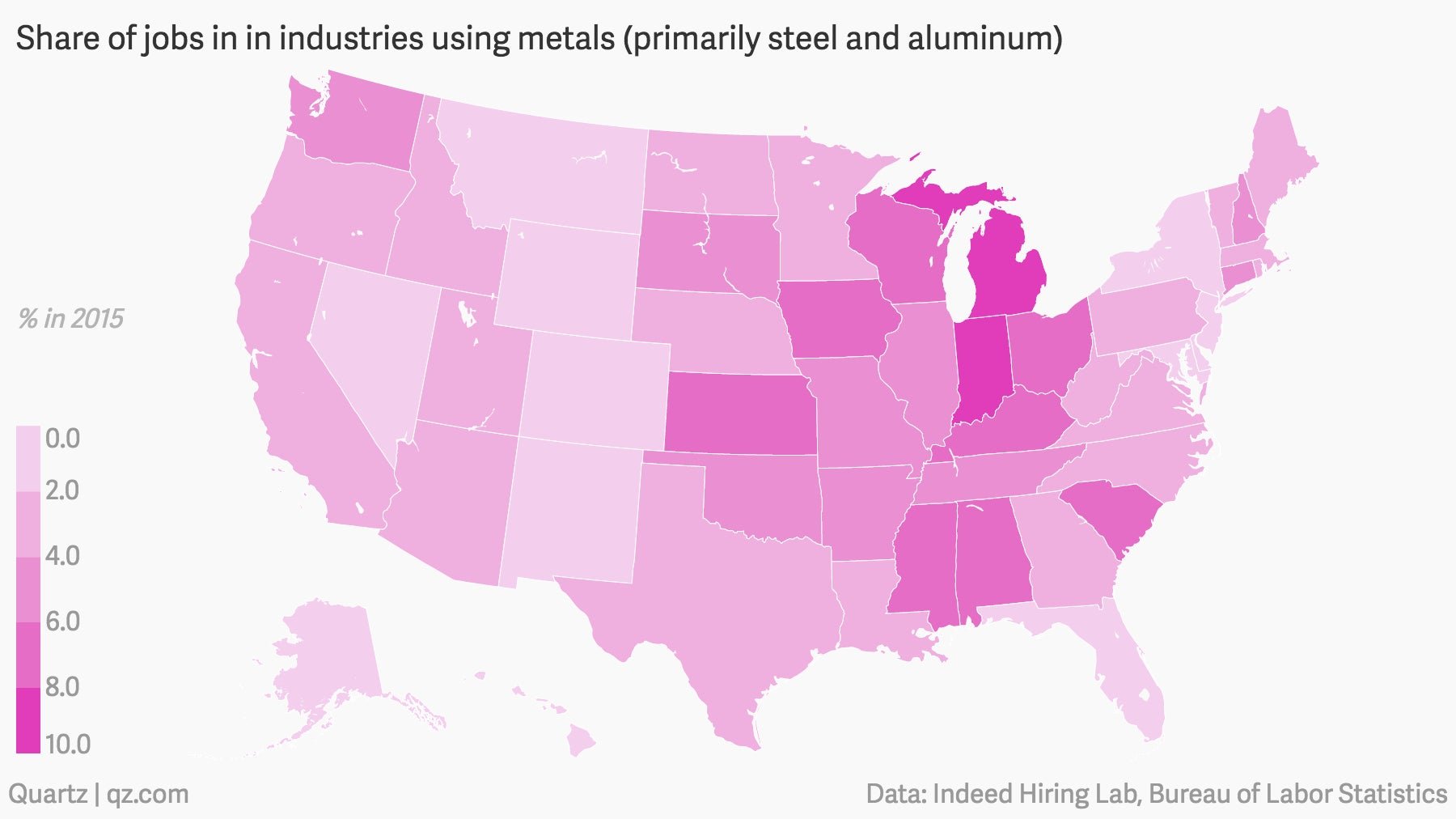The US states that will be helped and hurt by Trump’s tariffs
There will be winners and losers from Donald Trump’s recently announced tariffs on steel and aluminum imports. A disproportionately large number of winners are in Indiana.


There will be winners and losers from Donald Trump’s recently announced tariffs on steel and aluminum imports. A disproportionately large number of winners are in Indiana.
According to analysis by economist Jed Kolko of the job site Indeed, almost 1.7% of all jobs in Indiana are at companies producing steel and aluminum. (The data cover the year 2015, the latest for which detailed data is available.) That is by far the highest of any state. These jobs are now safer, since competition with imported steel will be reduced as a result of the tariffs.
“Indiana certainly has more to gain than any other state if this relief is put into effect,” said Alliance for American Manufacturing president Scott Paul, according to USA Today.
Alabama is the only other state where more than 1% of jobs are in the industries protected by the tariffs. In more than half of US states, steel- and aluminum-producing jobs account for less than 0.2% of overall employment.

In contrast, the share of people working in industries that use steel and aluminum is much larger and more widespread. Kolko finds that in January 2018, there were 4.6 million people working in industries that use metal, versus just over 400,000 in metal-producing jobs. In the majority of US states, over 3% of workers have jobs at businesses that use steel and aluminum as inputs in their products.
States likely to be hurt by Trump’s tariffs include Michigan and Kansas. In Michigan, 9.3% of people work at companies that use steel and aluminum, while just 0.6% punch the clock at jobs producing these metals. The ratio of 7.1% users to 0.2% producers is even worse in Kansas.

Businesses that use steel and aluminum will be hurt by the tariffs because the metals will become more expensive. The negative impact on these firms won’t be as acute as the positive impact on metal producers, because steel and aluminum only comprises a share of many products (like cars), while for a steel producer it is everything. Still, many metal-using businesses will become less internationally competitive after the tariffs are imposed, and economists believe this will lead to lost jobs.